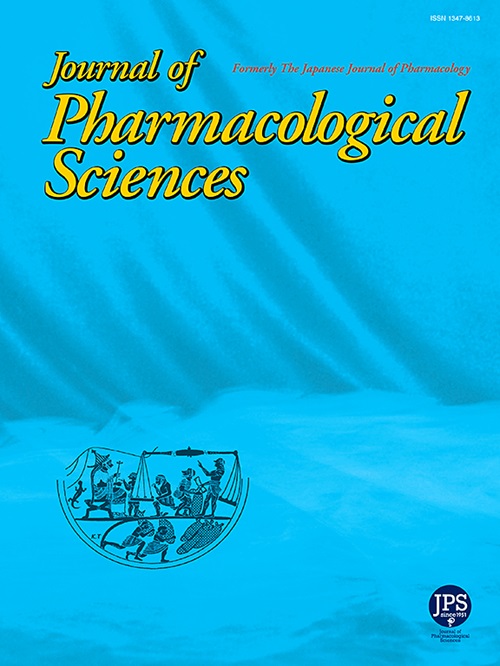靶向CD38缓解血管性痴呆患者脑内皮细胞功能障碍和认知障碍
IF 2.9
3区 医学
Q2 PHARMACOLOGY & PHARMACY
引用次数: 0
摘要
血管性痴呆(VaD)是认知能力下降的主要原因,与脑血管内皮细胞(CEC)功能障碍、血脑屏障(BBB)破坏和神经炎症密切相关。CD38是一种与神经炎症和细胞衰老有关的酶,已成为这些病理过程的潜在调节因子,但其在VaD背景下CEC功能障碍中的作用尚不清楚。在本研究中,我们通过双侧颈总动脉狭窄(BCAS)诱导的VaD小鼠模型研究了CD38对CEC功能障碍的影响。我们的研究结果表明,BCAS显著降低脑血流量(CBF),增加血脑屏障通透性,诱导认知缺陷,所有这些都伴随着CECs中CD38表达升高和促炎细胞因子(IL-1β, IL-6, TNF-α)水平升高。值得注意的是,使用选择性CD38抑制剂78c (10 mg/kg,每天两次,持续1个月)有效减轻了这些影响,减少了白质损伤,改善了CBF,增强了CEC紧密连接蛋白的表达,减少了神经炎症和血脑屏障的破坏。体外实验进一步表明,78c可能通过NOX4/eNOS通路,减弱了TNF-α-诱导的CECs中CD38的表达和炎症反应。这些发现表明CD38是VaD中CEC功能障碍的关键介质,将慢性脑灌注不足与神经血管损伤联系起来。本文章由计算机程序翻译,如有差异,请以英文原文为准。
Targeting CD38 to alleviate brain endothelial cell dysfunction and cognitive impairment in vascular dementia
Vascular dementia (VaD) is a leading cause of cognitive decline, closely associated with cerebrovascular endothelial cell (CEC) dysfunction, blood-brain barrier (BBB) disruption, and neuroinflammation. CD38, an enzyme implicated in neuroinflammation and cellular senescence, has emerged as a potential regulator of these pathological processes, yet its role in CEC dysfunction within the context of VaD remains unclear. In this study, we investigated the impact of CD38 on CEC dysfunction using a mouse model of VaD induced by bilateral common carotid artery stenosis (BCAS). Our results demonstrate that BCAS significantly reduces cerebral blood flow (CBF), increases BBB permeability, and induces cognitive deficits, all accompanied by elevated CD38 expression in CECs and heightened levels of pro-inflammatory cytokines (IL-1β, IL-6, TNF-α). Notably, treatment with the selective CD38 inhibitor 78c (10 mg/kg, twice daily for 1 month) effectively mitigated these effects, reducing white matter damage, improving CBF, enhancing the expression of CEC tight junction proteins, and decreasing neuroinflammation and BBB disruption. In vitro experiments further revealed that 78c attenuates TNF-α-induced CD38 expression and inflammatory responses in CECs, likely through the NOX4/eNOS aixs. These findings identify CD38 as a crucial mediator of CEC dysfunction in VaD, linking chronic cerebral hypoperfusion to neurovascular damage.
求助全文
通过发布文献求助,成功后即可免费获取论文全文。
去求助
来源期刊
CiteScore
6.20
自引率
2.90%
发文量
104
审稿时长
31 days
期刊介绍:
Journal of Pharmacological Sciences (JPS) is an international open access journal intended for the advancement of pharmacological sciences in the world. The Journal welcomes submissions in all fields of experimental and clinical pharmacology, including neuroscience, and biochemical, cellular, and molecular pharmacology for publication as Reviews, Full Papers or Short Communications. Short Communications are short research article intended to provide novel and exciting pharmacological findings. Manuscripts concerning descriptive case reports, pharmacokinetic and pharmacodynamic studies without pharmacological mechanism and dose-response determinations are not acceptable and will be rejected without peer review. The ethnopharmacological studies are also out of the scope of this journal. Furthermore, JPS does not publish work on the actions of biological extracts unknown chemical composition.

 求助内容:
求助内容: 应助结果提醒方式:
应助结果提醒方式:


